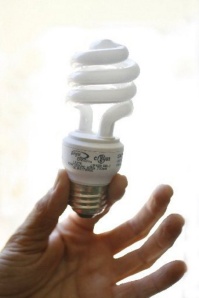Looking to save money on your energy bill? Don’t believe everything you hear. CUB debunked some of the top myths when it comes to cutting your power bill:
You should leave your appliances on when you’re not home so they won’t have to work as hard when you return. Although it’s true that turning off your air conditioner or computer when you leave might make it work a little harder when you return, the electricity saved by not running such items more than makes up for those few minutes of hard work.
Fans help cool down your home. Fans don’t actually change the temperature of a room. Instead, they simply move air around to create a breeze, making people feel cooler. Since you can’t feel the breeze if you’re not in the room, there’s no reason to waste electricity by leaving the fan running.
Turning electronics off means they’re not using any electricity. Most of your devices still draw power even when they’re turned off. This is called “vampire power,” and it can account for up to 20 percent of your power bill. Go a step further and unplug energy-sucking devices like computers, TVs and DVD players, and consider purchasing a smart power strip.
Lowering the thermostat cools the house faster. Turning your thermostat to a super low temperature won’t cool your house any faster, it will just make the fan run longer, increasing your electricity bill.
Fluorescent lights are unhealthy. Like computer screens, thermostats, and the thermometers moms once commonly stuck in the mouths of their children, Compact Fluorescent Light (CFL) bulbs do contain mercury—about the amount that could fit on the head of a pin. A bulb being used in the house does not emit mercury or vapors. If a CFL does break, don’t panic, just take precautions outlined in CUB’s CFL fact sheet. (An official at Troy, New York’s Lighting Research Center once told Popular Mechanics that the bulbs pose little risk, unless “you wipe up mercury [without gloves] and then lick your hand.”) Because CFLs are so efficient, they use less electricity and thus help reduce a major national health concern: pollution from coal-fired power plants. If you’re still uneasy about CFLs, consider LED bulbs. They’re more expensive, but contain no mercury and cut your power bill even more.
For good information, check out CUB Energy Saver, our free online service that since 2010 has been dedicated to busting myths and helping consumers cut their natural gas and electric bills by $100 a year.


